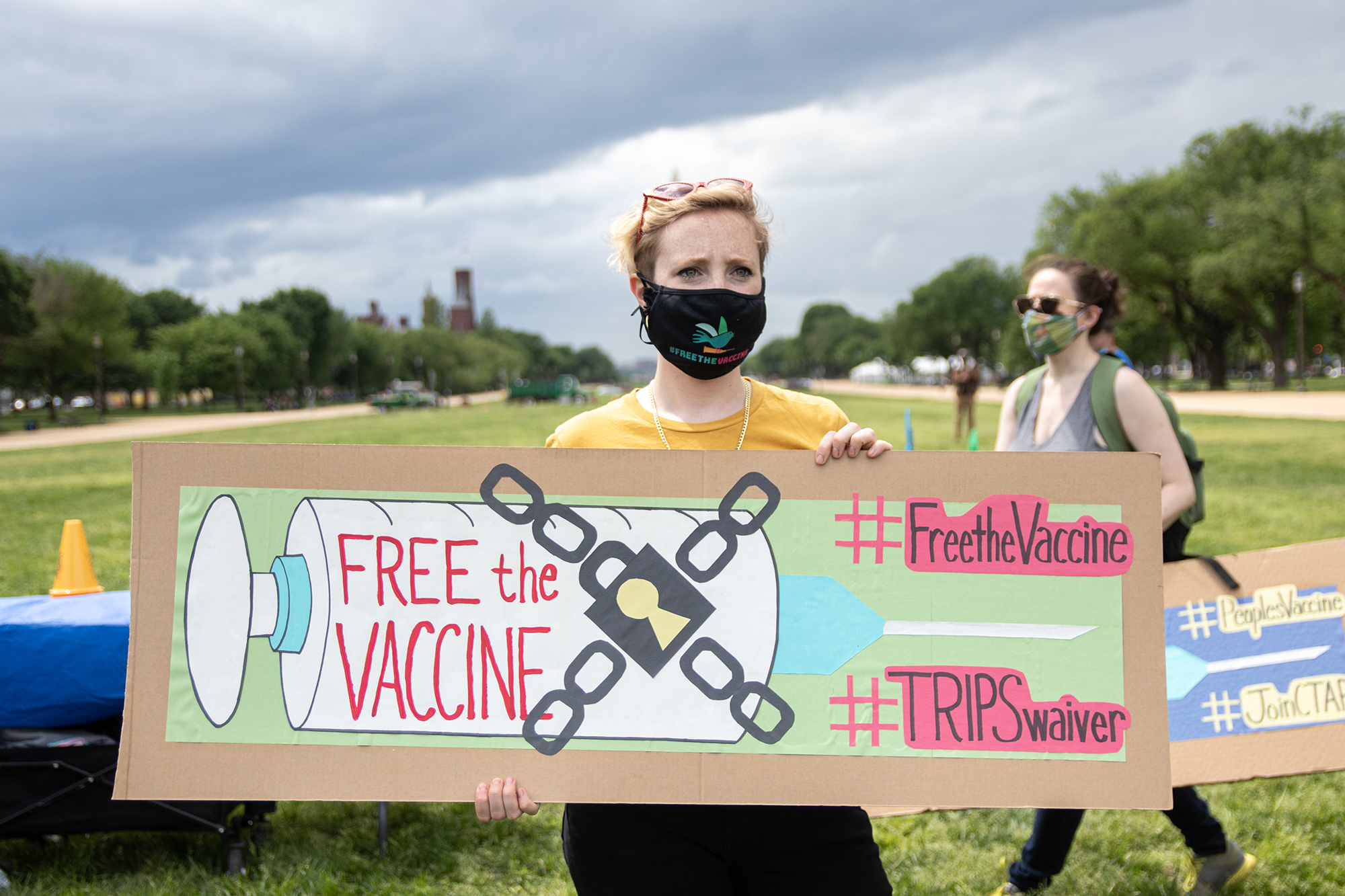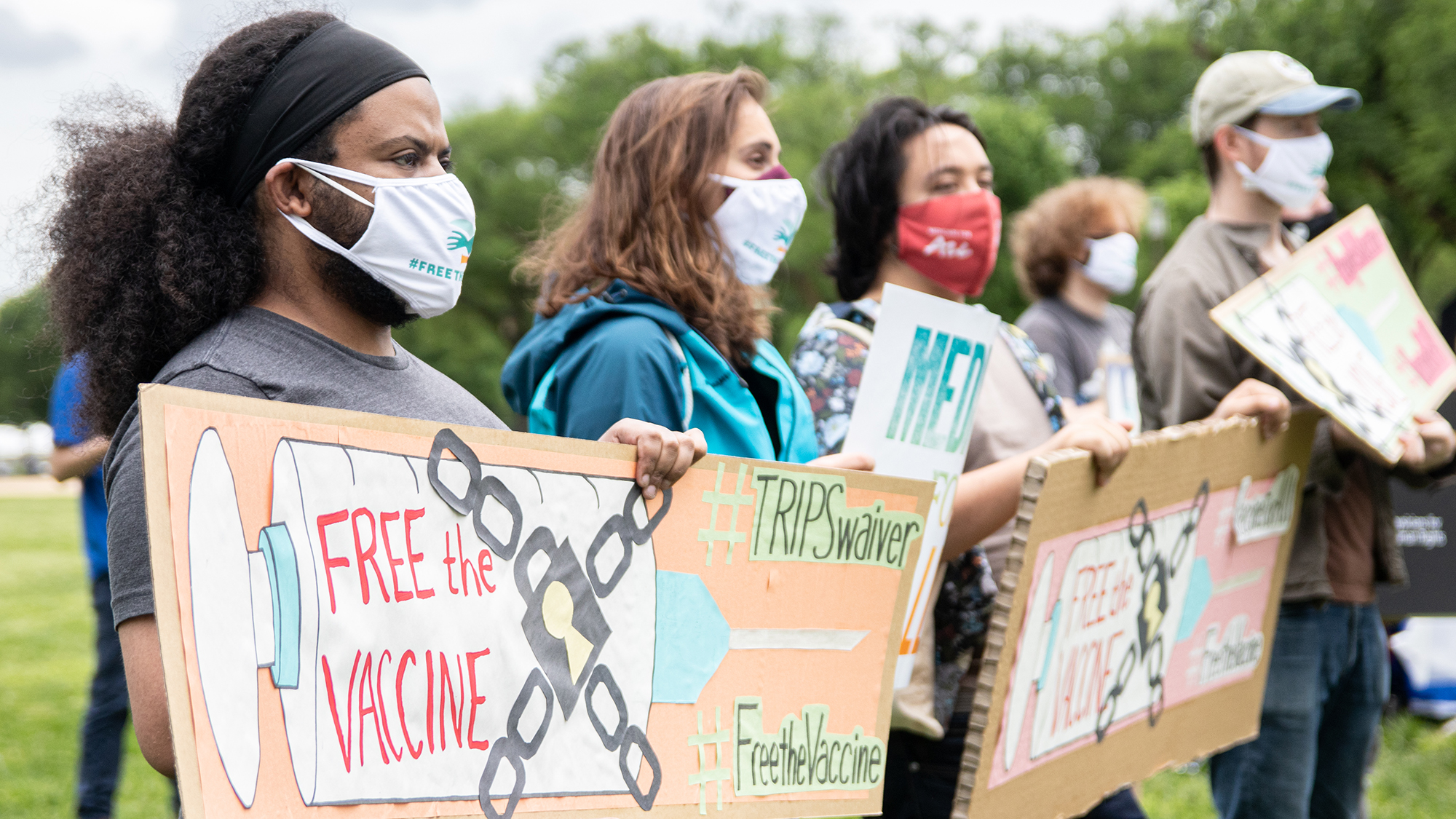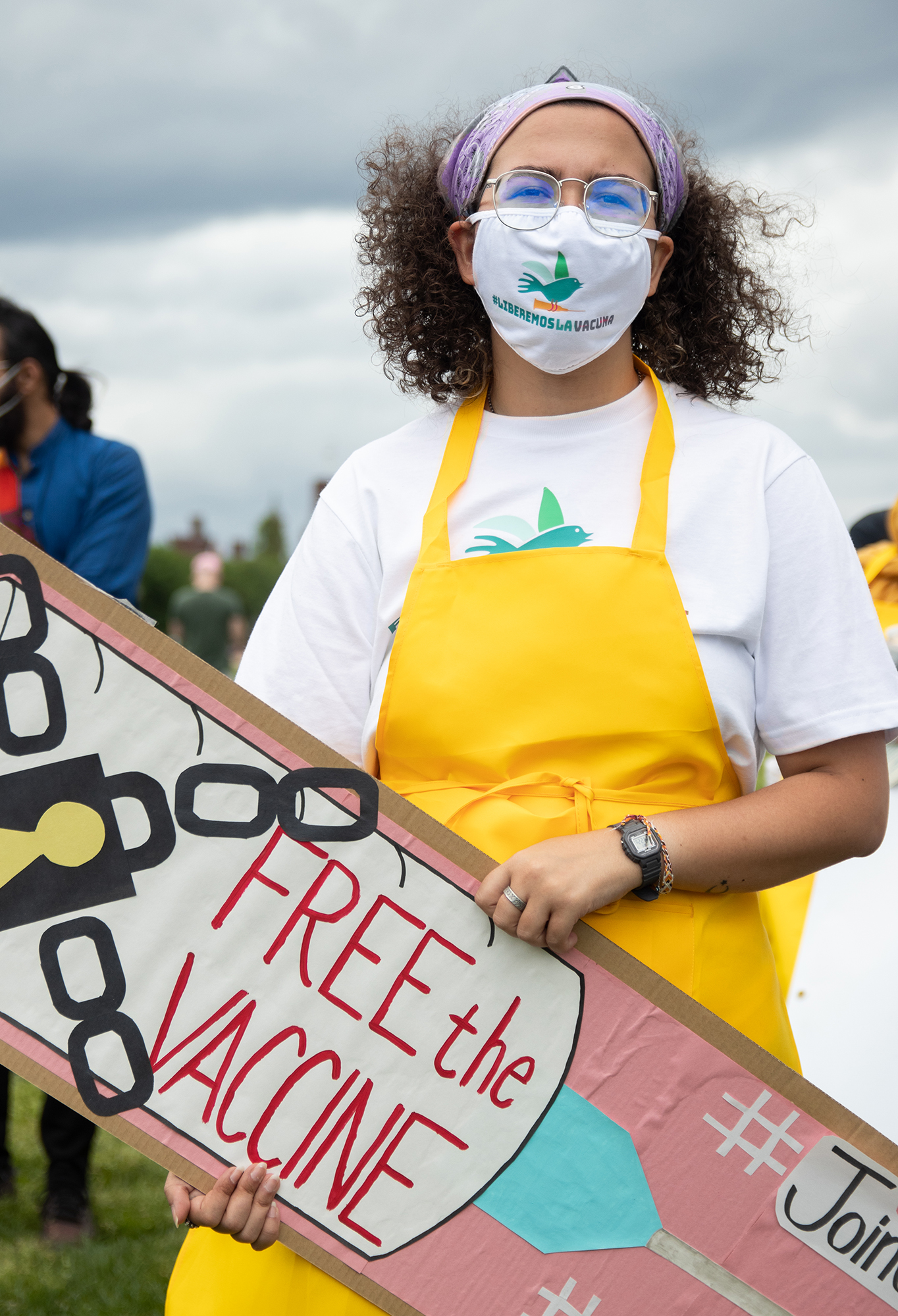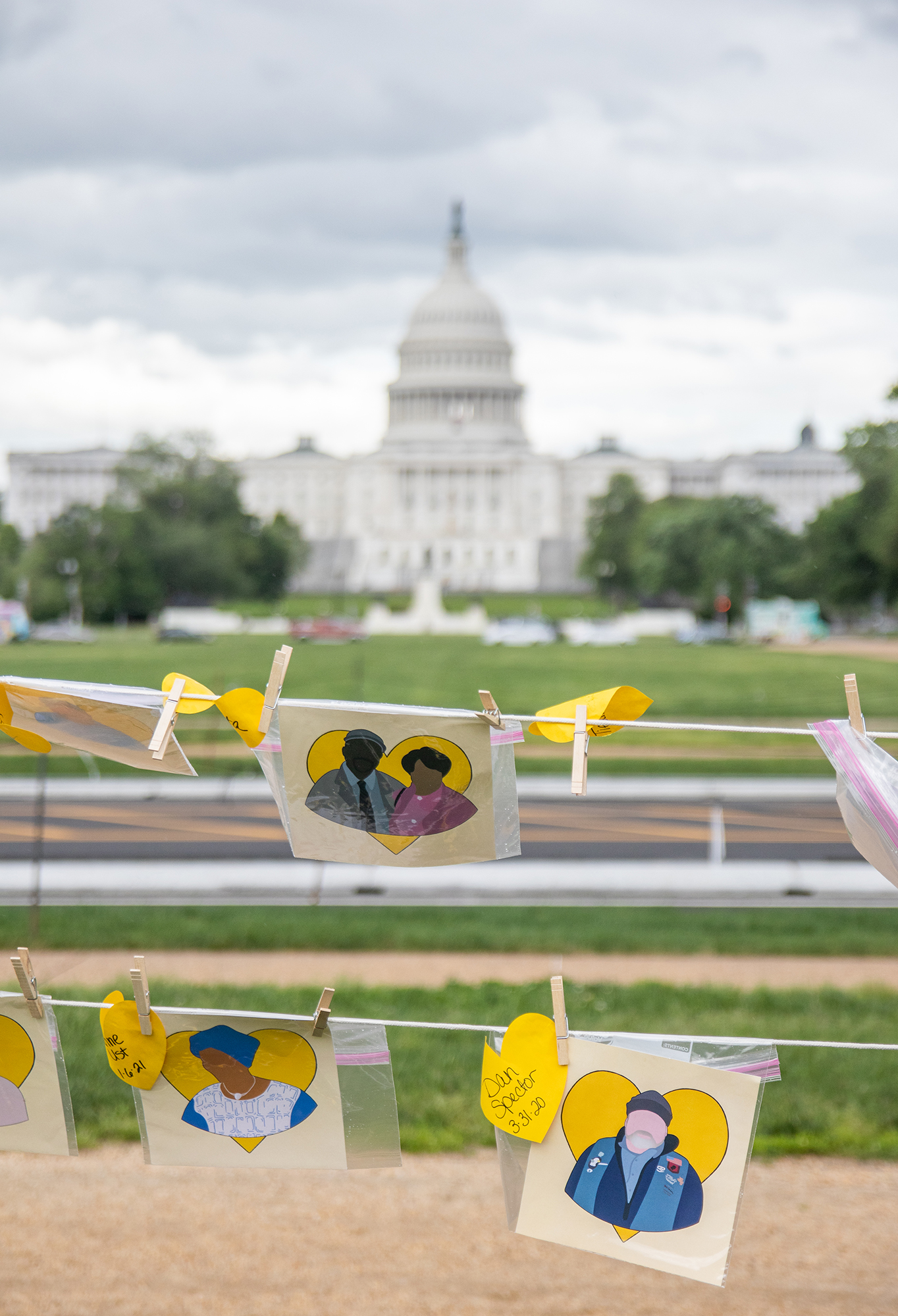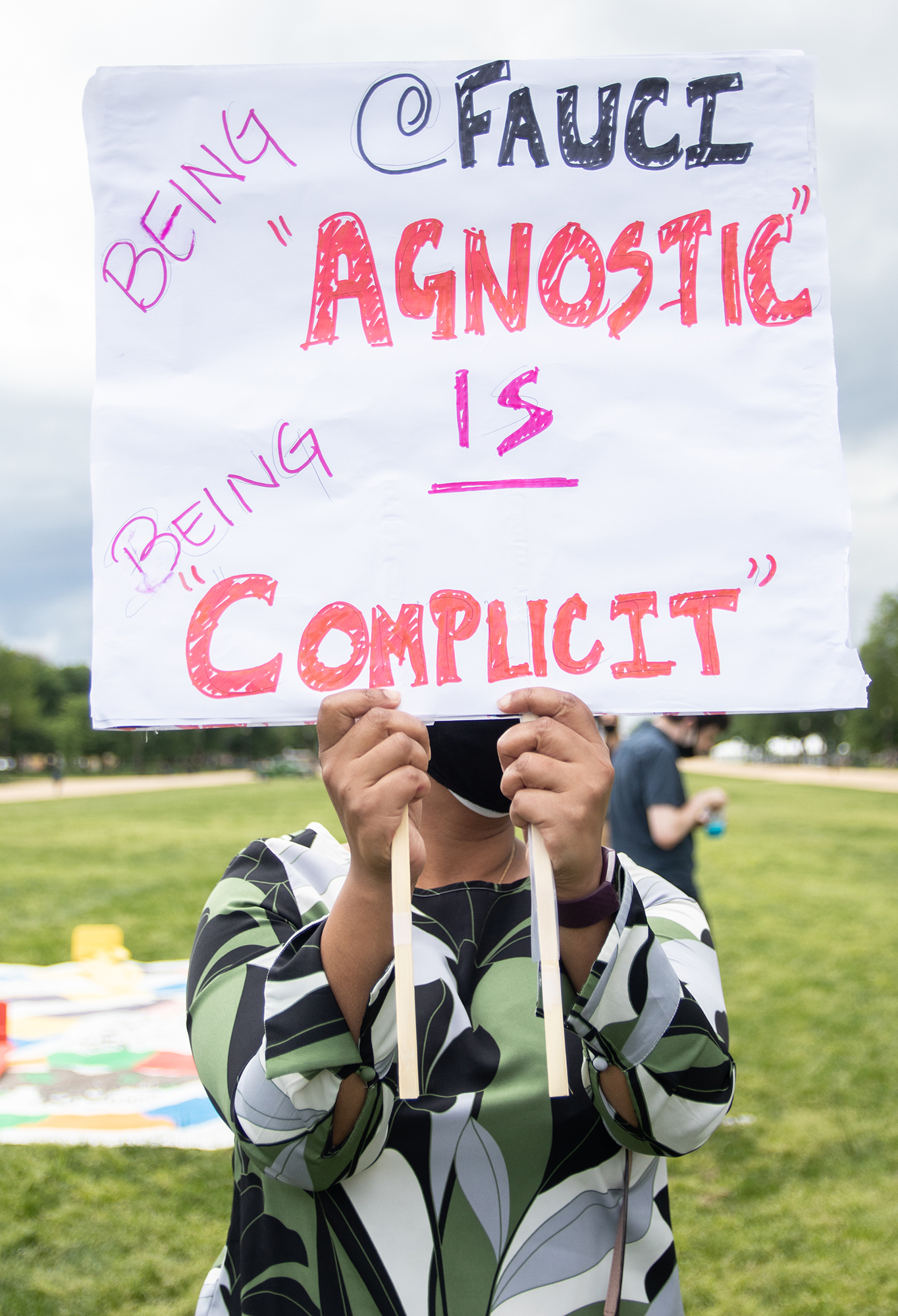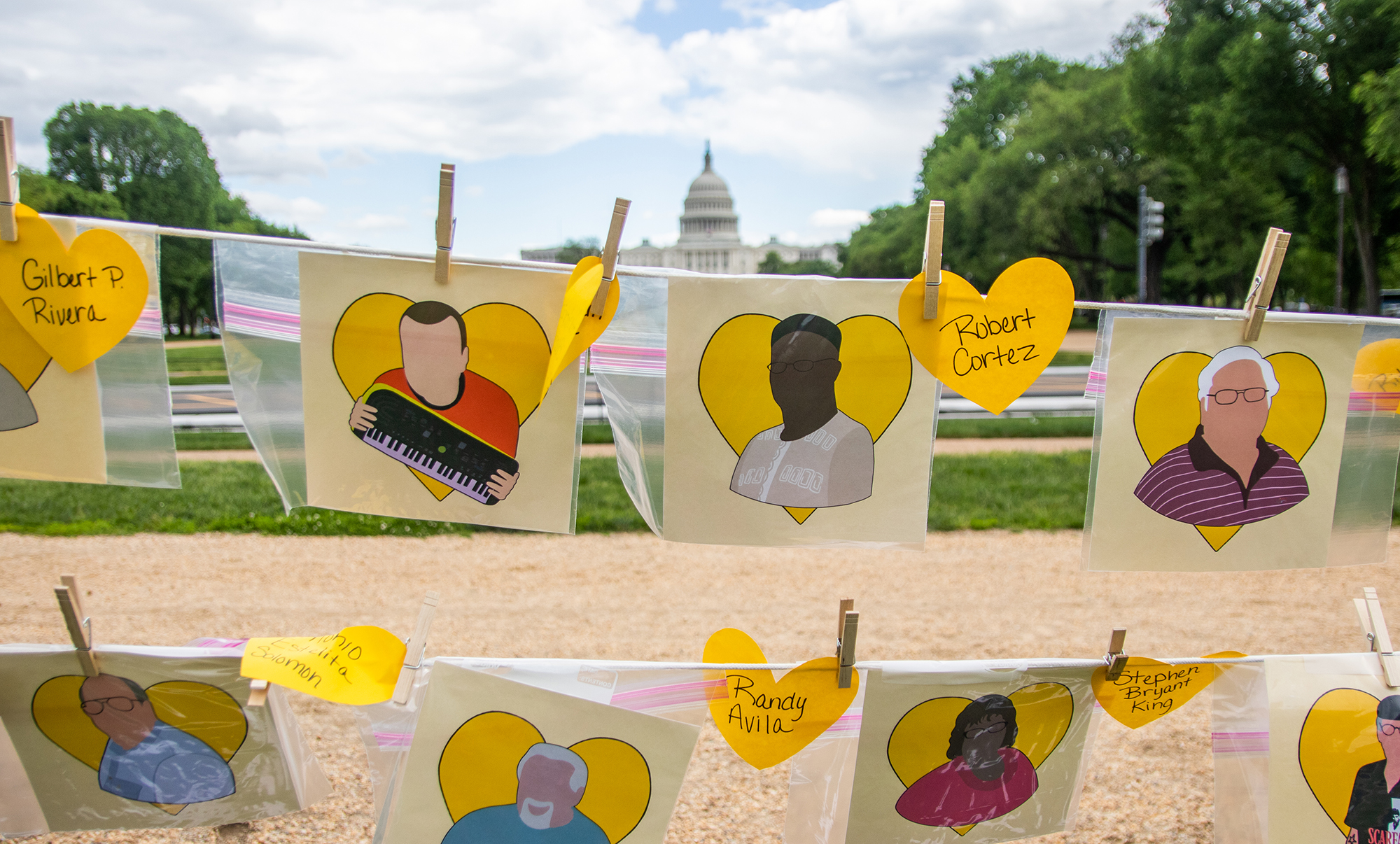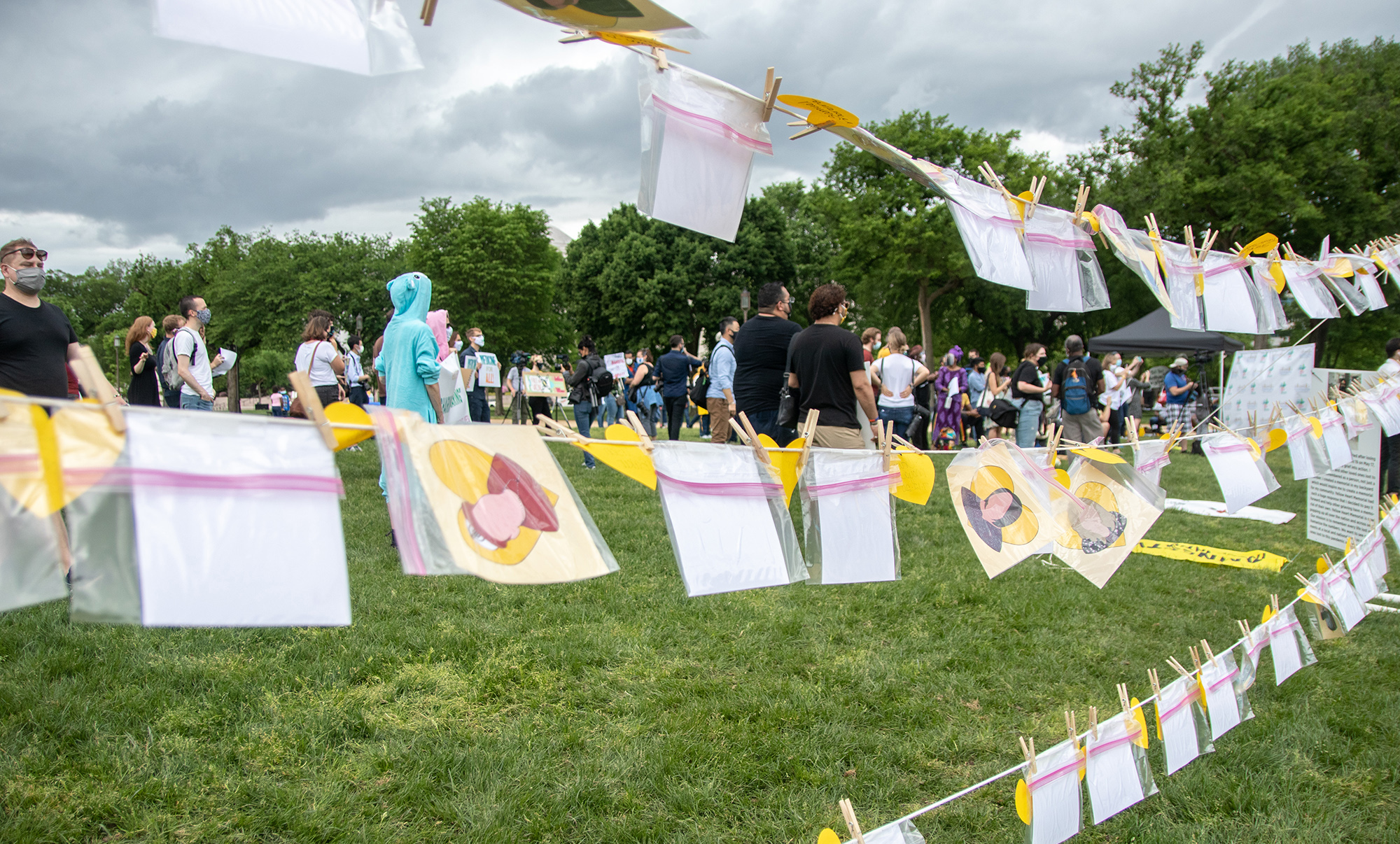Rain fell around Maanasa Gurram as she stepped onto a stage set up just across from the U.S. Capitol Wednesday afternoon.
Speaking into a microphone, the University of Maryland student shared a fiery condemnation of how President Joe Biden’s administration has handled the global distribution of the COVID-19 vaccine. Around her, protestors stood with drums, rain ponchos and signs emblazoned with “Free the Vaccine” or “Universal Free COVID-19 Vaccine.”
“I’m tired of these excuses. I’m tired of the government prioritizing politics and profits during a pandemic,” the sophomore physiology and neurobiology major said as other gatherers cheered.
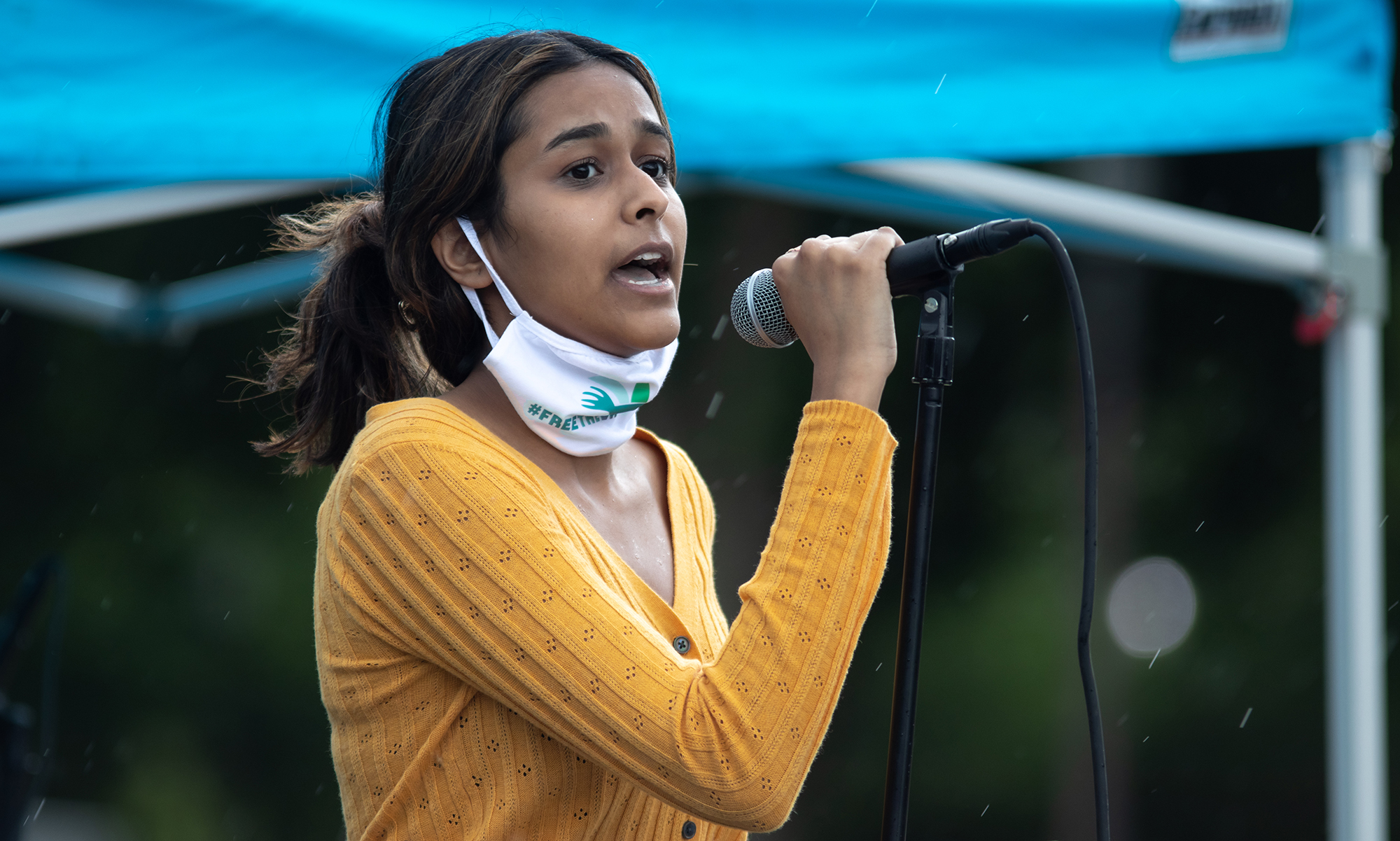
The Biden campaign promised to support suspending intellectual property protections for COVID-19 vaccines to increase the production of vaccines around the world. On Wednesday, the Biden administration announced it will support waiving such protections.
That same day, the university’s chapter of Universities Allied for Essential Medicines took to the D.C. streets as part of the “Free the Vaccine” rally. The chapter gathered alongside other organizations to push the Biden administration to waive intellectual property rights for the COVID-19 vaccine, which are protected under the World Trade Organization’s Agreement on Trade-Related Aspects of Intellectual Property Rights.
[USM Chancellor Jay Perman issues systemwide COVID-19 vaccine mandate]
A waiver of parts of the agreement would allow the “vaccine recipe” to be distributed to other vaccine manufacturers.
“Since when did the right to intellectual property become more important than the right to life?” Gurram, the marketing and outreach director of this university’s UAEM chapter, said at the rally.
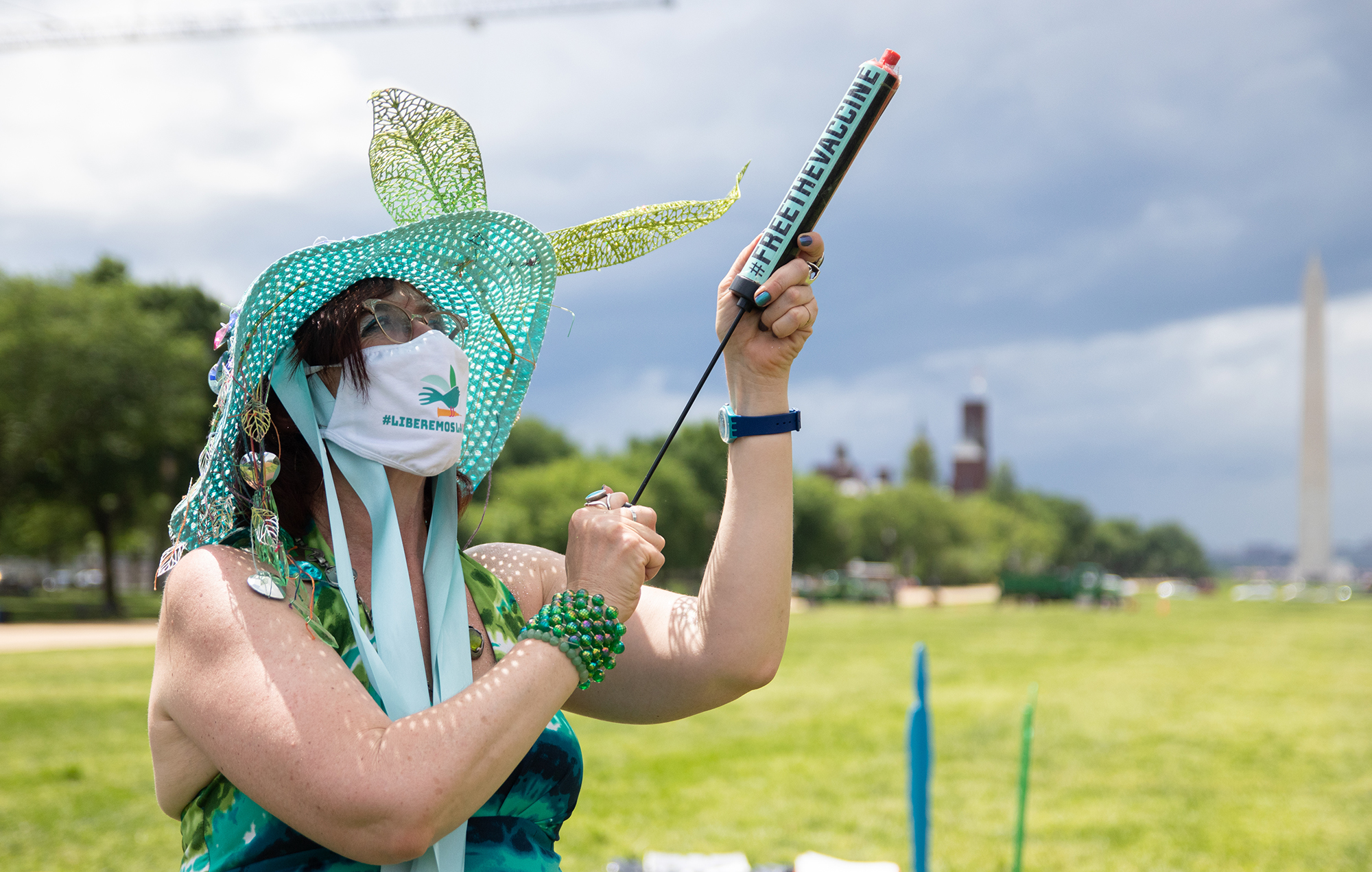
Leah Young, a freshman community health and psychology major, said she came to the rally to “support the cause” — one she became passionate about learning about public health disparities in class.
“They’re putting money over lives,” Young said.
As the rally came to a close, the sun started to peek out from behind the clouds and Emira Woods, a founding member of Africans Rising for Justice, Peace and Dignity, took the stage. She led the crowd in chanting “no more” discrimination against Black, brown and Indigenous populations.
“We are coming, as people who have lost loved ones,” Woods said, adding the movement is “fighting for human rights.”
The demonstrators’ cries, it seemed, would soon be answered: An hour into the rally, an organizer took the stage to share some preliminary news reports about the administration’s stance on intellectual property protections.
As reports continued to roll in, the announcement soon became official: Katherine Tai, the U.S. Trade Representative Ambassador, announced that the U.S. would participate in negotiations about waiving intellectual property protections.
Cheers erupted among protesters.
“This means we will win,” a demonstrator announced to the crowd.
[M&T Bank Stadium’s COVID-19 vaccination site hosts ‘University Days’ through Saturday]
But this university’s UAEM chapter is not done fighting.
The group is also urging this university to pledge to participate in the COVID-19 Technology Access Pool, a World Health Organization initiative that would distribute the research to other communities.
“It’s kind of crazy to see how these issues relating to COVID-19 equity in research, it’s an issue that we can tackle here at UMD,” said Tayyiaba Farooq, a senior government and politics and physiology and neurobiology major and chapter president of UAEM.
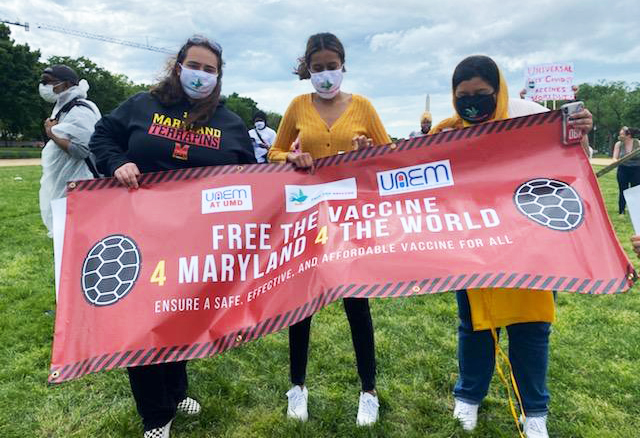
In a statement on vaccine equity, a university spokesperson referred to the university’s COVID-19 vaccine distribution toward those facing barriers to vaccination.
“Significant data has shown that communities of color have especially been disproportionately impacted by the pandemic, and as such, vaccine distribution should be equitable and fair,” the statement read.
Advocacy and knowledge are particularly important when it comes to global health, Farooq said.
“I think a big thing that a lot of students don’t realize is how much their institutions actually play a role in global health equity…when it comes down to it, a significant amount of research that goes into drug development or that goes into health technologies, it actually starts in university labs,” Farooq said. “There’s empowerment in education.”
